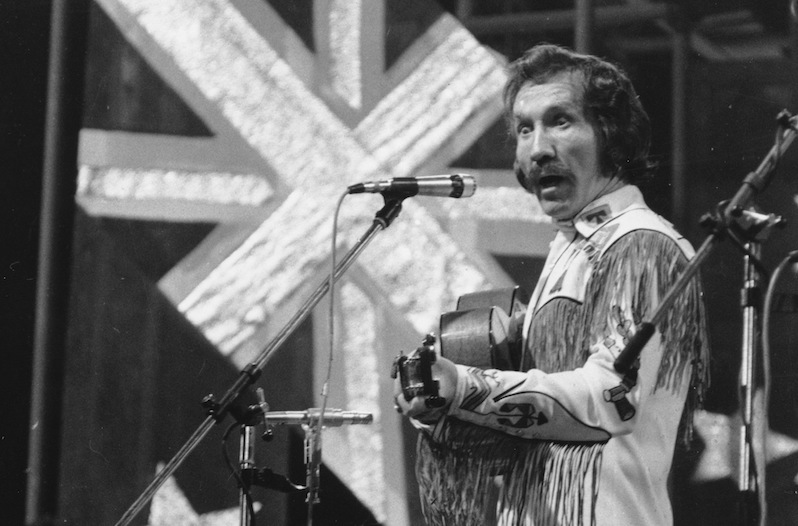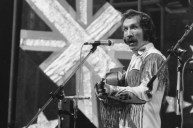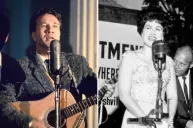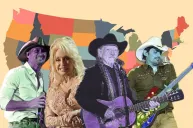Due to an error in the recording process, Marty Robbins' 1961 single "Don't Worry" impacted more than the country and pop charts at the time. Before the Beatles made it to the States, inspiring teenagers across the country to form bands, an otherwise typical love ballad by Robbins accidentally introduced the listening public to electric guitar "fuzz" effects more associated with garage rock.
Videos by Wide Open Country
Grady Martin, a rockabilly and county legend and A-list session musician, was the secret weapon behind Robbins' "El Paso," Loretta Lynn's "Coal Miner's Daughter" and other all-time great recordings. On "Don't Worry," he played six-string bass. A relatively tame song sounds way different when Martin's solo begins about the 1:25 mark. He'd run his instrument through a faulty mixing console. As a result, it sounded like he'd stirred up a nest of metallic hornets.
Apparently, Martin didn't care for the effect. Producer Don Law disagreed, leaving the unusual wrinkle in the final cut. The decision didn't hinder the single off More Greatest Hits' success. In addition to becoming Robbins' seventh number one country hit, it ranked as high as third on the pop chart.
Whatever hesitations Martin may have had about guitar fuzz must not have lasted. He built a whole song around the effect, fittingly titled "The Fuzz," and recorded it with his band the Slewfoot Five. It was released the same year as "Don't Worry."
Read More: Revisiting the NASCAR Career of Marty Robbins
Session engineer Glen Snoddy also took advantage of the situation. He hung onto the faulty mixing channel and made it available to other artists. By 1962, Snoddy helped sell the idea for a fuzz pedal to the Gibson Guitar Corporation.
The effect appeared in a handful of future country songs, including Carl Smith's "Wonder Drug," Kay Adam's "Little Pink Mac" and most famously, Merle Haggard's "The Running Kind." But for the most part, it's associated with rock music, especially after the Rolling Stones' Keith Richards used it to simulate the sound of a horn on 1965's "(I Can't Get No) Satisfaction."
Did Robbins' song inspire a generation of fuzz pedal devotees outside of country music circles? Probably not. At the very least, his supporting cast in the studio that session helped pave trippy times ahead for popular music.
One of Robbins' high points as a songwriter and recording artists has since been covered by Holly Dunn, LeAnn Rimes and Jimmie Dale Gilmore.
This post was originally published on April 13, 2018.
"Don't Worry" Lyrics
Don't worry 'bout me, it's all over now
Though I may be blue, I'll manage somehow
Love can't be explained, can't be controlled
One day it's warm, next day it's cold
Don't pity me 'cause I'm feelin' blue
Don't be ashamed, it might have been you
Oh-oh-oh, oh, love
Kiss me one time, then go, love
I understand, don't worry 'bout me
Sweet, sweet, sweet love, I want you to be
As happy as I when you loved me
I'll never forget you, your sweet memory
It's all over now, don't worry 'bout me
When one heart tells one heart, one heart good-bye
One heart is free, one heart will cry
Oh-oh-oh, oh, sweet, sweet baby, sweet baby, sweet
It's all right, don't worry 'bout me
Now Watch: Dolly Parton Movies Every Fan Should See
https://rumble.com/embed/u7gve.v3v9z3/




